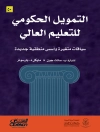In ‘How to Become a Writer, ‘ Arnold Bennett encapsulates the essence of literary craftsmanship through a meticulous exploration of the art and intricacies of writing. Not merely a how-to guide, Bennett delves into the psychological motivations and discipline required for a writer’s journey. His style is characterized by clarity and encouragement, blending pragmatic advice with philosophical insights that mirror the socio-cultural milieu of early 20th-century England. This period saw the rise of modernism, and Bennett’s emphasis on personal experience and individuality resonates with the evolving literary landscape. Arnold Bennett, a prominent figure in the literary world, was not only a novelist but also a journalist and playwright. His diverse experiences informed his writing, encouraging him to challenge aspiring authors to harness their inner voice. Born in a working-class family, Bennett’s life journey from the pottery town of Stoke-on-Trent to literary acclaim imbued him with a unique perspective on art and authenticity—elements he passionately shares in this work. This book is a vital companion for both novice and seasoned writers, offering profound insights into developing one’s craft while navigating the complexities of self-expression. Bennett’s blend of practicality and inspiration serves as a guiding beacon for those aspiring to leave a mark in the literary world.
A propos de l’auteur
Arnold Bennett (1867-1931), born Enoch Arnold Bennett, was a significant yet sometimes overlooked figure in the early 20th-century British literary scene. Bennett achieved acclaim through his prolific career as a novelist, playwright, and critic. His merits as an author were anchored in his unique blend of realism and detailed dissection of the everyday lives of people, particularly those hailing from the Five Towns of the Staffordshire Potteries, an area he immortalized through his works. Bennett’s legacy extends beyond his fiction to contributions to journalism and practical advice on the literary craft, notably in ‘How to Become a Writer’ – a guide aspiring to aid writers in honing their skills in the face of emerging modernist trends. While Bennett’s narrative style is at times criticized for its excessive focus on Edwardian-era realism, which contrasted sharply with the innovations brought forth by his contemporaries like Virginia Woolf, his novels such as ‘The Old Wives’ Tale’ and ‘Anna of the Five Towns’ prevail as testaments to his narrative prowess and remain staples in the study of early modern British literature. Bennett’s career is characterized by a commitment to exploring the fabric of the mundane and his influence persists through his insights into the craft of writing, offering a significant reflection on the literature of his time.












